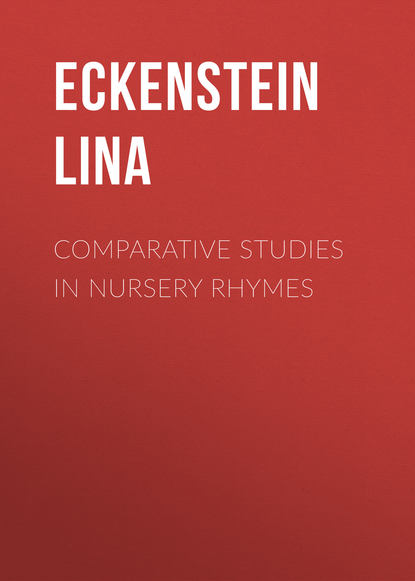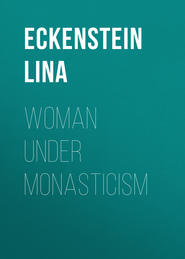По всем вопросам обращайтесь на: info@litportal.ru
(©) 2003-2024.
✖
Comparative Studies in Nursery Rhymes
Настройки чтения
Размер шрифта
Высота строк
Поля
(1799, p. 46.)
Halliwell's collection includes only the first and the fourth verse of this piece. (1842, p. 24.)
In the estimation of Chappell this song was a very popular ballad, which was sung to the tune of I am the Duke of Norfolk, or Paul's Steeple.[14 - Chappell, loc. cit., p. 770.] It appears also in the Fairing or Golden Toy for Children of all Sizes and Denominations of 1781, where it is designated as "a new love song by the poets of Great Britain." Its words form a variation of the song called The Dumb Maid, which is extant in a broadside of about 1678,[15 - Roxburgh Collection of Ballads, IV, p. 355.] and which is also included in the early collection of Pills to Purge Melancholy of 1698-1719. The likeness between the pieces depends on their peculiar repeat: —
There was a bonny blade had married a country maid,
And safely conducted her home, home, home;
She was neat in every part, and she pleased him to the heart,
But alas, and alas, she was dumb, dumb, dumb.
The same form of verse was used in another nursery song which stands as follows: —
There was a little man, and he had a little gun,
And the ball was made of lead, lead, lead.
And he went to a brook to shoot at a duck,
And he hit her upon the head, head, head.
Then he went home unto his wife Joan,
To bid her a good fire to make, make, make,
To roast the duck that swam in the brook,
And he would go fetch her the drake, drake, drake.
(1744, p. 43; with repeat, 1810, p. 45.)
Again, a song which appears in several early nursery collections is as follows: —
There was an old woman toss'd in a blanket,
Seventeen times as high as the moon;
But where she was going no mortal could tell,
For under her arm she carried a broom.
"Old woman, old woman, old woman," said I,
"Whither, ah whither, ah whither, so high?"
To sweep the cobwebs from the sky,
And I'll be with you by and by.
(c. 1783, p. 22.)
This song was a favourite with Goldsmith, who sang it to his friends at dinner on the day when his play The Good-natured Man was produced.[16 - Forster, Life of Goldsmith, II, 122.] It was one of the numerous songs that were sung to the tune of Lilliburlero, which goes back at least to the time of Purcell.[17 - Chappell, loc. cit., p. 569.] A Scottish version of this piece was printed by Chambers, which presents some interesting variations: —
There was a wee wifie row't up in a blanket,
Nineteen times as hie as the moon;
And what did she there I canna declare,
For in her oxter she bure the sun.
"Wee wifie, wee wifie, wee wifie," quo' I,
"O what are ye doin' up there sae hie?"
"I'm blowin' the cauld cluds out o' the sky."
"Weel dune, weel dune, wee wifie!" quo' I.
(1870, p. 34.)
I have come across a verse sung on Earl Grey and Lord Brougham, written in 1835, which may have been in imitation of this song: —
Mother Bunch shall we visit the moon?
Come, mount on your broom, I'll stick on a spoon,
Then hey to go, we shall be there soon … etc.
Mother Bunch is a familiar character of British folk-lore, who figures in old chapbooks as a keeper of old-world saws, and gives advice in matters matrimonial. One of the earliest accounts of her is Pasquill's Jests with the Merriments of Mother Bunch, extant in several editions, which was reprinted by Hazlitt in Old English Jestbooks, 1864, Vol. III. There are also Mother Bunch's Closet newly broke open, Mother Bunch's Golden Fortune Teller, and Mother Bunch's Fairy Tales, published by Harris in 1802. The name also occurs in Mother Osborne's Letter to the Protestant Dissenters rendered into English Metre by Mother Bunch, 1733. Mother Bunch, like Mother Goose and Mother Shipton, may be a traditional name, for Mother Bunch has survived in connections which suggest both the wise woman and the witch.
Another old song which figures in early nursery collections is as follows: —
What care I how black I be?
Twenty pounds will marry me;
If twenty won't, forty shall —
I am my mother's bouncing girl.
(c. 1783, p. 57.)
Chappell mentions a song called, What care I how fair she be, which goes back to before 1620.[18 - Chappell, loc. cit., p. 315.] The words of these songs seem to have suggested a parody addressed to Zachary Macaulay, the father of the historian, who pleaded the cause of the slaves. The Bill for the abolition of slavery was passed in 1833, and the following quatrain was sung with reference to it: —
What though now opposed I be?
Twenty peers will carry me.
If twenty won't, thirty will,
For I'm His Majesty's bouncing Bill.
(N. & Q., 8, XII, 48.)
Another so-called nursery rhyme which is no more than a popular song has been traced some way back in history by Halliwell, who gives it in two variations: —
Three blind mice, see how they run!
They all run after the farmer's wife,
Who cut off their tails with a carving knife,
Did you ever see such fools in your life —
Three blind mice!
(1846, p. 5.)
In Deuteromalia of 1609 this stands as follows: —
Three blind mice, three blind mice!
Dame Julian, the miller and his merry old wife
She scrapte the tripe, take thow the knife.
Among the popular songs which have found their way into nursery collections is the one known as A Frog he would a wooing go, the subject of which is old. Already in 1549 the shepherds of Scotland sang a song called, The Frog cam to the Myldur. In the year 1580 there was licensed, A most strange Wedding of the Frog and the Mouse, as appears from the books of the Stationers' Company cited by Warton.[19 - Warton, History of English Poetry, 1840, III, 360.] The song has been preserved in many variations with a variety of burdens. These burdens sound like nonsense, but in some cases the same words appear elsewhere in a different application, which shows that they were not originally unmeaning.
The oldest known version of the song begins: —
It was a frog in the well, humble dum, humble dum,
And the mouse in the mill, tweedle tweedle twino.[20 - Chappell, loc. cit., p. 88.]
The expression humble dum occurs in other songs and seems to indicate triumph; the word tweedle represents the sound made by the pipes.
A Scottish variation of the song begins: —
There lived a Puddy in a well, Cuddy alone, Cuddy alone,






